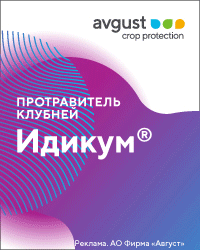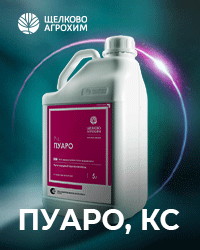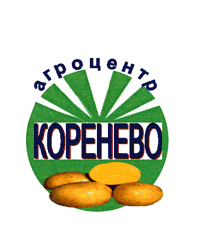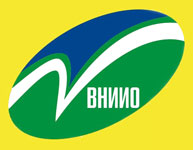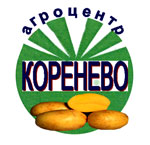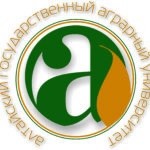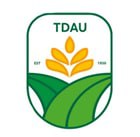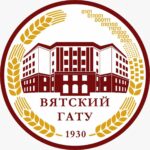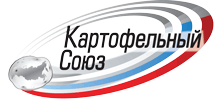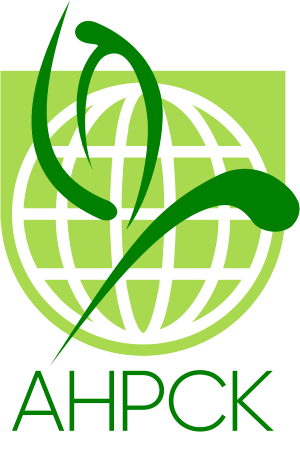UDC 635.21:632.76
https://doi.org/10.25630/PAV.2022.58.69.002
Matsishina N.V., Ermak M.V., Fisenko P.V., Volkov D.I.
The potato ladybug Henosepilachna vigintioctomaculata causes significant damage to plants of the Solanaceae family in the south of the Far East. Data on its bioecological features are scanty or studied for other regions of its habitat, despite the damage caused by it. The effect of temperature on the duration of ontogenesis stages and offspring mortality, the dependence of population density and nutrition were studied. Observations of the temperature influence on the potato ladybug rearing of were carried out by the daily fixing method. Eggs were placed in Petri dishes and emergence of larvae was recorded daily. The larvae were fed with the Smak variety. Feeding activity was estimated from the eaten area. Eaten area was assessed daily for 20-25 days in quadruple replications. Adults were weighed on scales before feeding, ten days later, and at the end of the experiment. After pre-selection, adults were placed in Petri dishes. A series with isolated placement of females served as a control. Researched by different temperatures are favorable for the development of the potato ladybug at all ontogenesis stages. A course of an embryonic stage the temperature of 21-25 °С is favorable at the fastest a stage was observed, and was 3,0±0,11 - 5,6±0,06 days. For the larval, the optimum temperature was 17-20 °C, at which the percentage of surviving was greatest (77.3±0.21 to 87.6±0.09), but stage duration increased by 3-4 days (19.6±0.06 to 13.6±0.07). For the pupal the most favorable temperature was 21-25 °С, at which the duration of life was 8,6±0,09-14,0±0,09 days, and the survival rate was 55,1±0,11-73,4±0,05%. At 21-25 °C, the transition of ontogenesis from egg to adult was 28.9 ± 0.05 days and was minimal in duration.
Key words: potato ladybug, ontogenesis, temperature
Matsishina N.V., Cand. Sci. (Biol.), senior research fellow of the laboratory of selection and genetic research of field crops. E-mail: mnathalie134@gmail.com
Ermak M.V., junior research fellow of the Laboratory of Selection and Genetic Research of Field Crops. E-mail: ermackmarine@yandex.ru
Fisenko P.V., Cand. Sci. (Agr.), leading research fellow, Head of Laboratory of Selection and Genetic Research of Field Crops. E-mail: phisenko@bk.ru
Volkov D.I., postgraduate student, Head of Potato and Vegetable Growing Department. E-mail: volkov_dima@inbox.ru
FSBSI “Federal Scientific Center of Agricultural Biotechnology of the Far East named after A.K. Chaika”
- Sivasankari S., Kathirvelu C., Kannan R. Impact of host plants on the biology of hadda beetle, Henosepilachna vigintioctopunctata fab. in laboratory condition. Int. J. Entomol. Res. 2021. Vol.6(6). Pp. 293–295.
- Tara J. S., Sharma S. Biology and life cycle of Henosepilachna vigitioctopunctata fabricius, a serious defoliator of bitter gourd (momordica charantia) in jammu region (jammu & kashmir) india. Ind. J. Sci. Res. 2017. Vol.13(1). Pp. 199–203.
- Preliminary assessment of potato varieties of domestic and foreign breeding for resistance to potato twenty-eight-spot ladybug Henosepilachna vigintioctomaculata Motch. (Fabricius, 1775) in Primorsky Krai. N.V. Matsishina, A.S. Shaibekova, N.G. Boginskaya, O.A. Sobko, D.I. Volkov, I.V. Kim. Russian vegetables. 2019. No6(50). Pp. 116-119. DOI 10.18619/2072-9146-2019-6-116-119. (In Russ.).
- Dorofeeva M.M., Bonetskaya S.A. Comparative analysis of some classical and modern methods for determining the area of the leaf surface. Plant resources. 2020. No56(2). Pp. 182–192. https://doi.org/10.31857/S0033994620020041. (In Russ.).
- Denisova S.I., Sedlovskaya S.M. Dynamics of development of dendrophilous lepidoptera depending on the physiological state of fodder plants: monograph. Vitebsk.VGU. 2021. 118 p. (In Russ.).
- Ivanter E.V., Korosov A.V. Introduction to quantitative biology: textbook. Petrozavodsk: PetrGU Publishing House. 2011. 302 p. (In Russ.).
- Hammer O., Harper D.A.T., Ryan P.D. PAST: Paleontological Statistics Software Package for Education and Data Analysis [Web resource]. Palaeontologia Electronica. 2001. Vol.4(1). Article 4. URL: https://palaeo-electronica.org/2001_1/past/past.pdf . Data of address: 10.06.2022.
- Gromova A. A. Influence of population density of the Colorado potato beetle on the feeding activity of males and females of the Colorado beetle Leptinotarsa decemlineata Say (Coleoptera, Chrysomelidae). Behavior of insects as a basis for developing measures to combat pests in agriculture and forestry. Kyiv. Naukova Dumka. 1975. Pp. 39–42. (In Russ.).
- Chernyshev V.B. Ecology of insects: textbook. Moscow: Publishing House of Moscow State University. 1996. 304 p. (In Russ.).
- Yakhontov V.V. On the biology of coccinellids Brumus octosignatus Gebl. and Semiadalia imdecimnotata Schneid. and experiments on their use in the fight against pests of cotton and alfalfa. Trudy institution botany and zoology Academy of Sciences of the Uzbek SSR. Tashkent. 1950. No3. Pp. 31–37. (In Russ.).
- Kalaiyarasi L., Ananthi Rachel Livingstone. Relevance of temperature and host plants on the life cycle of Henosepilachna vigintioctopunctata (Fab.). Int. J. Zool. Stud. 2018. Vol.3(2). Pp. 213–217.
- Jamwal V.V.S., Ahmad H., Sharma D. Host biology interactions of Epilachna vigintioctopunctata Fabr. Bioscan. 2013. Vol.8(2). Pp. 513–517.
- Bumpy K., Arora R. Impact of alternating temperature and elevated CO2 on Hadda beetle, Henosepilachna vigintioctopunctata (Coleoptera: Coccinellidae). Bioscan. 2017. Vol.12(2). Pp. 743–747.
- Atwal A.S., Dhaliwal G.S. Agricultural pests of South Asia and their management. 5ed. New Delhi, Ludhiana. Kalyani Publishers. 2005. 505 p.
For citing: Influence of temperature on the 28-point ladybeetle Henosepilachna vigintioctomaculata ontogenesis duration. N.V. Matsishina, M.V. Ermak, P.V. Fisenko, D.I. Volkov. Potato and vegetables. 2022. No7. Pp. 24-28. https://doi.org/10.25630/PAV.2022.58.69.002 (In Russ.).

